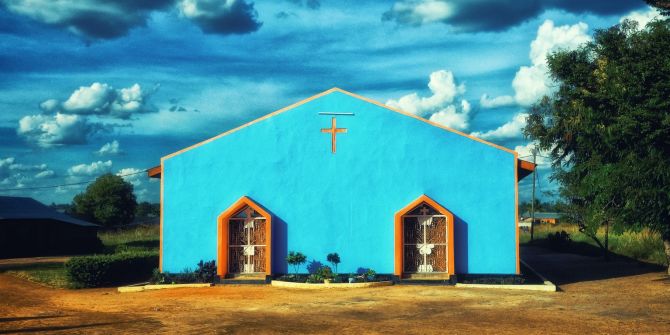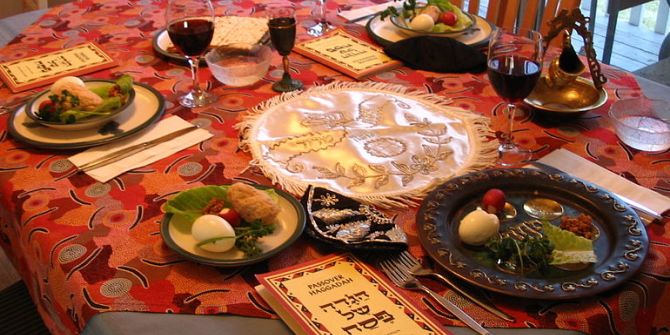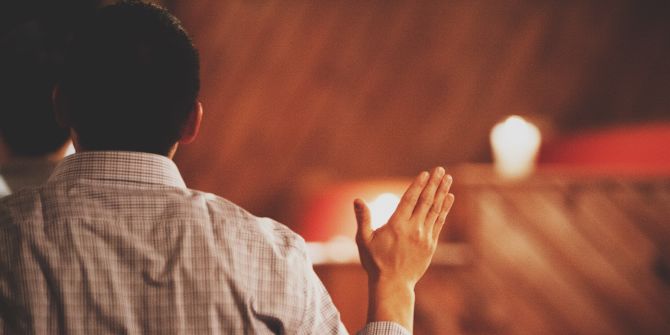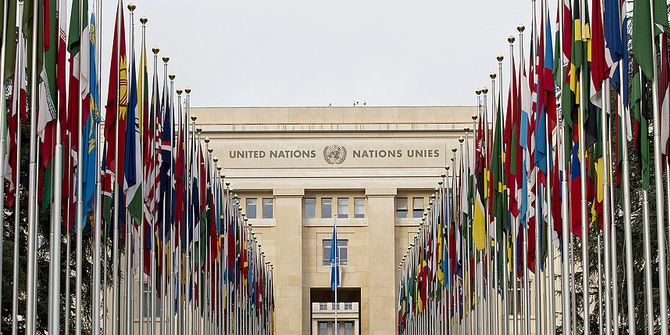Public health emergencies in Africa continue to bring the interplay between religion and science to the fore. Though he recounts examples of religious leaders compromising public health advice, Bankole Falade’s research on accommodation psychology helps to explain how and why religious and scientific knowledge systems can coexist productively. In societies with high levels of religiosity, public health guidance can be effectively communicated as complementary with religious teachings.

In 2003–04, religious leaders in northern Nigeria opposed an ongoing national vaccination campaign against the polio virus. Some imams had preached it was incompatible with Islamic injunctions on disease while others suspected that the vials used were deliberately contaminated with sterilizing substances. In Cameroon, girls ran away from schools to avoid vaccination teams, fearing the vaccines would sterilize them. The Cameroonian crisis was during a period of public disagreement between a pro-life Catholic group and the government over the Tetanus Toxoid vaccine being administered only to girls of childbearing age. During the Ebola Virus Disease (EVD) crisis of 2013–16 which claimed over 10,000 lives, some pastors in Africa were laying hands on the ill to cure them of “spiritual attacks”. More recently, during another outbreak of EVD in the Democratic Republic of Congo, a priest who travelled to the town of Butembo, one of the epicentres of the outbreak, to pray for those infected, contracted the disease and died.
While the above cases and others made headlines as “religion opposing science”, they were however exceptions to the often-cordial wider relationship between religion and science. During the Ebola crisis in West Africa, for example, churches, mosques and other places of worship across the subregion followed the advice of scientists and suspended religious practices which may have aided the spread of the disease. Going further, some religious institutions raised funds, through affiliates abroad, to buy much-needed equipment and medication for health workers to take care of the sick. Religious institutions in Nigeria have in recent years donated medical equipment to hospitals across the country and have also encouraged the teaching of science by setting up universities with science faculties. These faith-based universities include Redeemers, Covenant, Babcock, Crescent and Al-Hikmah, all licenced in the last 30 years.
My research in Africa has shown that the relationship between science and religion is not one of conflict but of “accommodation”, a coexistence of knowledge systems. This coexistence of knowledge has also been shown to be true in other parts of the world. The accommodation hypothesis evolved from the work of renowned social psychologist Serge Moscovici who showed how different social groups of 1950s France, through the newspapers they controlled, responded to a new scientific idea, Sigmund Freud’s psychoanalysis. The communist press saw psychoanalysis as an instrument of Western imperialism that should be rejected while the urban-liberal press accepted the idea with little resistance. The Catholic press likened the psychoanalyst’s dealings with his patients to a confession, but while they described it as dangerous, they urged spiritual advisers to work together with the therapists and encouraged the Church to adopt their findings. This “adoption” approach by those Catholics is true of the relationship between many religious institutions and science today.
The accommodation hypothesis falls within wider notions of health and disease proposed by critical psychologists which also include social, cultural and economic factors. The biomedical or clinical approach, researchers have shown, is not enough to explain behaviour as illness is experienced by an individual who is part of a society with distinctive cultural, religious and traditional practices, as well as economic constraints, which all combine to influence the perception of disease. Religious beliefs and traditional and clinical medical practices coexist in the treatment of mental health in Ghana and, despite the availability of antiretroviral drugs, HIV/AIDS patients in South Africa still patronise the traditional healers who provide affordable alternatives. As the COVID—19 pandemic spreads and religious institutions are once again called upon to adopt behavioural changes, including the suspension of all gatherings, our “accommodation” interest here is on the role of religious institutions in the public perception of disease and how they may aid or constrain its spread.
The percentage of people who believe in God remains very high in Africa. In some countries, respondents to a World Values Survey rated God as high as 9, on average, on a 10-point scale of importance. A survey conducted in Nigeria shows that respondents have the same levels of trust in religious leaders and scientists, and when asked for their first and second options for health care, findings show they consult science, religion and traditional medicine, albeit in different orderings. The same survey shows that 82% of respondents who subscribed to the statement ‘Father’s gene decides sex of the child’ also said “God decides sex of the child”. “We treat, God heals” is a popular banner in many hospitals across Africa as science and belief occupy the same position in the minds of the public and each is called upon at the same time for the same purpose. Some of the prominent leaders of these institutions are former scientists who went into the ministry. The leader of the Redeemed Christian Church of God, Pastor Adejare Adeboye, has a PhD in Applied Mathematics and was a former professor of mathematics at the University of Lagos, Nigeria. He recently donated 11 intensive care kits for the treatment of COVID—19 patients. His counterpart in the Mountain of Fire and Miracles Ministry has a PhD in Molecular Genetics.
Religious gatherings are not only for worship purposes, but also for socialising (meeting friends and extended family), for impression management (belongingness) and business networking. The pulpit is often yielded for business talks and mentoring while advances in science and technology have enabled these institutions to reach more “lost souls” all over the world, in real-time (Adeboye and Olukoya each have about 1 million followers on Twitter). Following the outbreak of COVID—19, religious institutions again accommodated new scientific advice by embracing social distancing and suspending all gatherings. Services are now solely online, with very few people in the premises to record and transmit. The question of the origin of the disease remains contested though, as some religious leaders in Nigeria claim it was sent by God for “sinners” worldwide to “repent”. This was also the message during the Ebola crisis and for many other diseases and illnesses.
Has COVID—19 made the church accept the supremacy of science over religion? Is “science and religion” a clash of ideas? My research has shown that science and religion coexist in many parts of Africa and the relationship is best described largely as one of accommodation. Few perceive conflict or supremacy. Religion remains a beacon, just as science is also a beacon, particularly for health and disease as the COVID—19 pandemic has again brought to light. The polio and tetanus vaccine controversies, among others, have shown that religious beliefs can aid both the spread and containment of disease. But aiding the spread is short-term in nature, the occasional bungee jump into the abyss. Science always recovers its status as a beacon and becomes inscribed in common sense, alongside other systems of knowing.
Note: This piece gives the views of the author(s), and not the position of the LSE Religion and Global Society blog, nor of the London School of Economics.






This is a brilliant article that shows the relationship between science and religious belief in Nigeria
I like this article. It only lacked reference of materials used. I wanted to read the materials consulted but its not here. Could you, kindly, forward it to me?